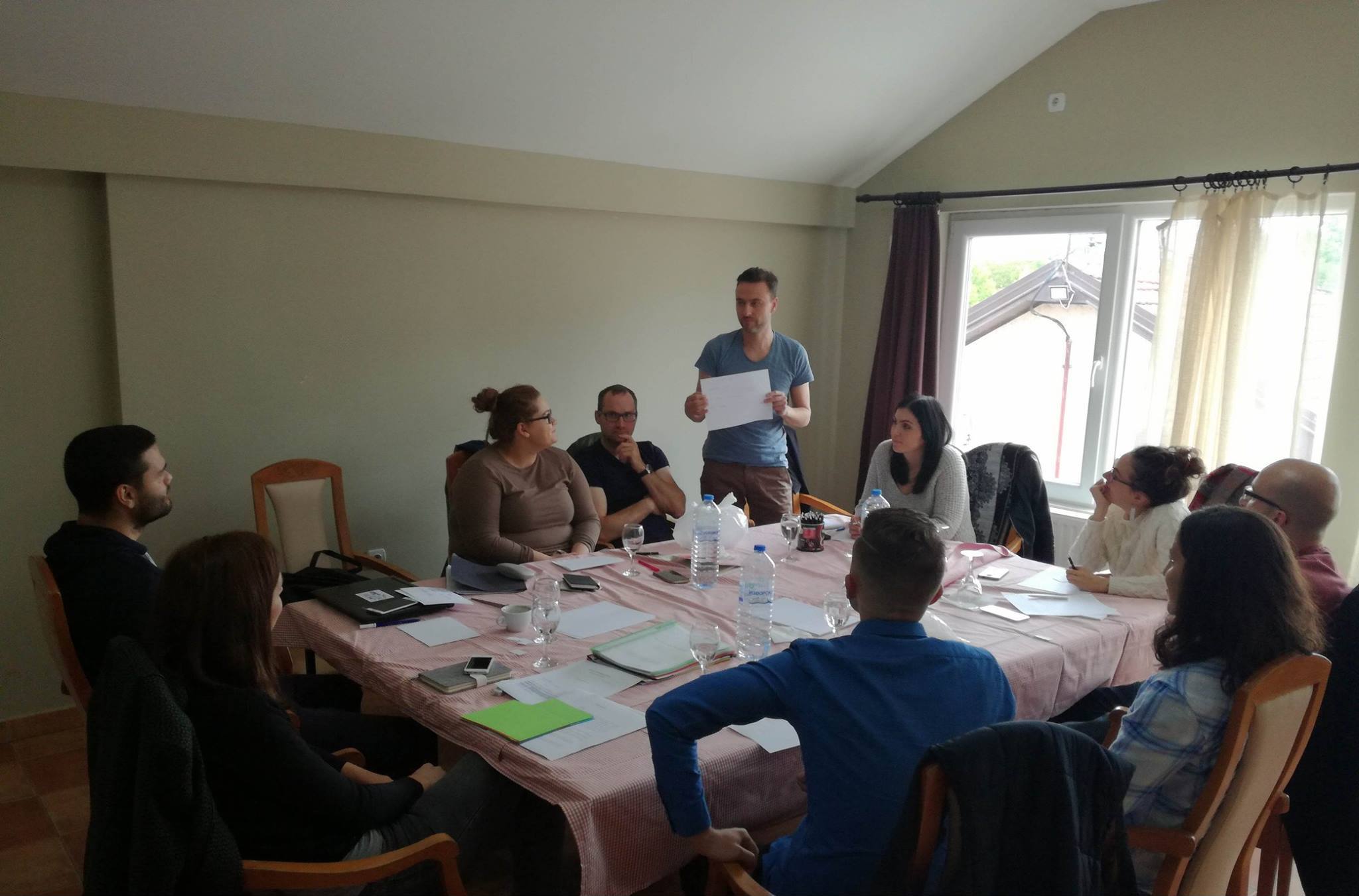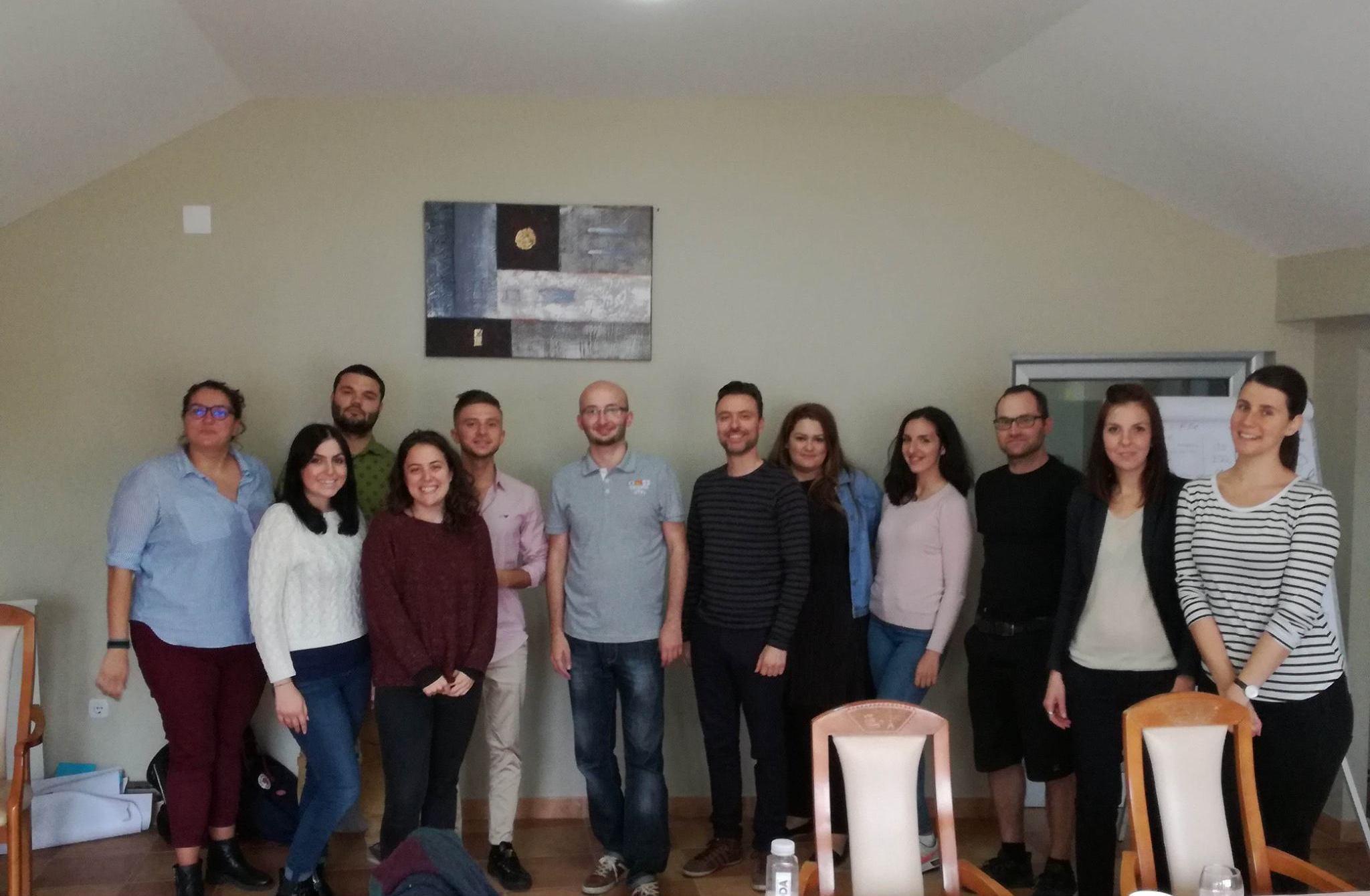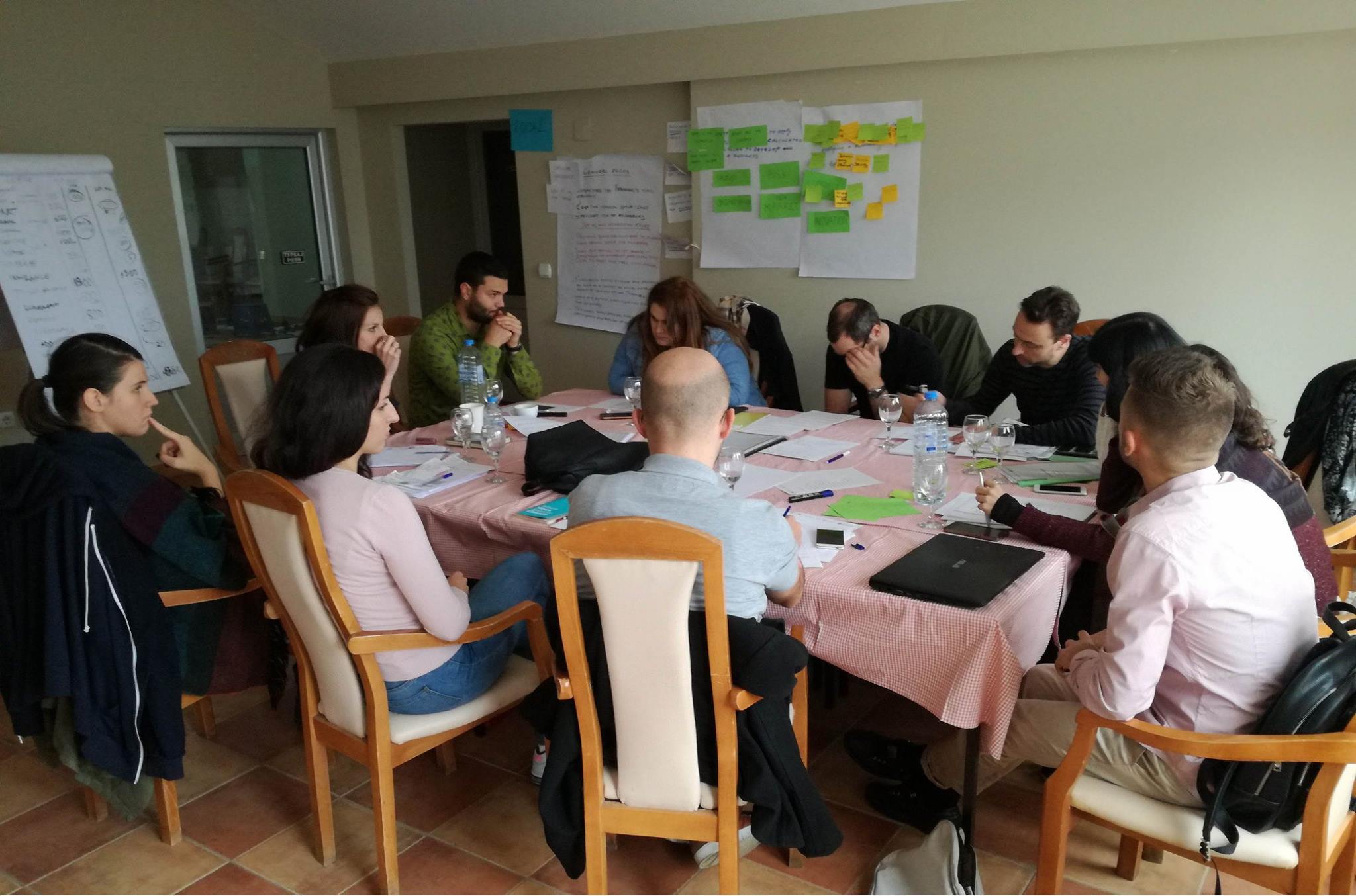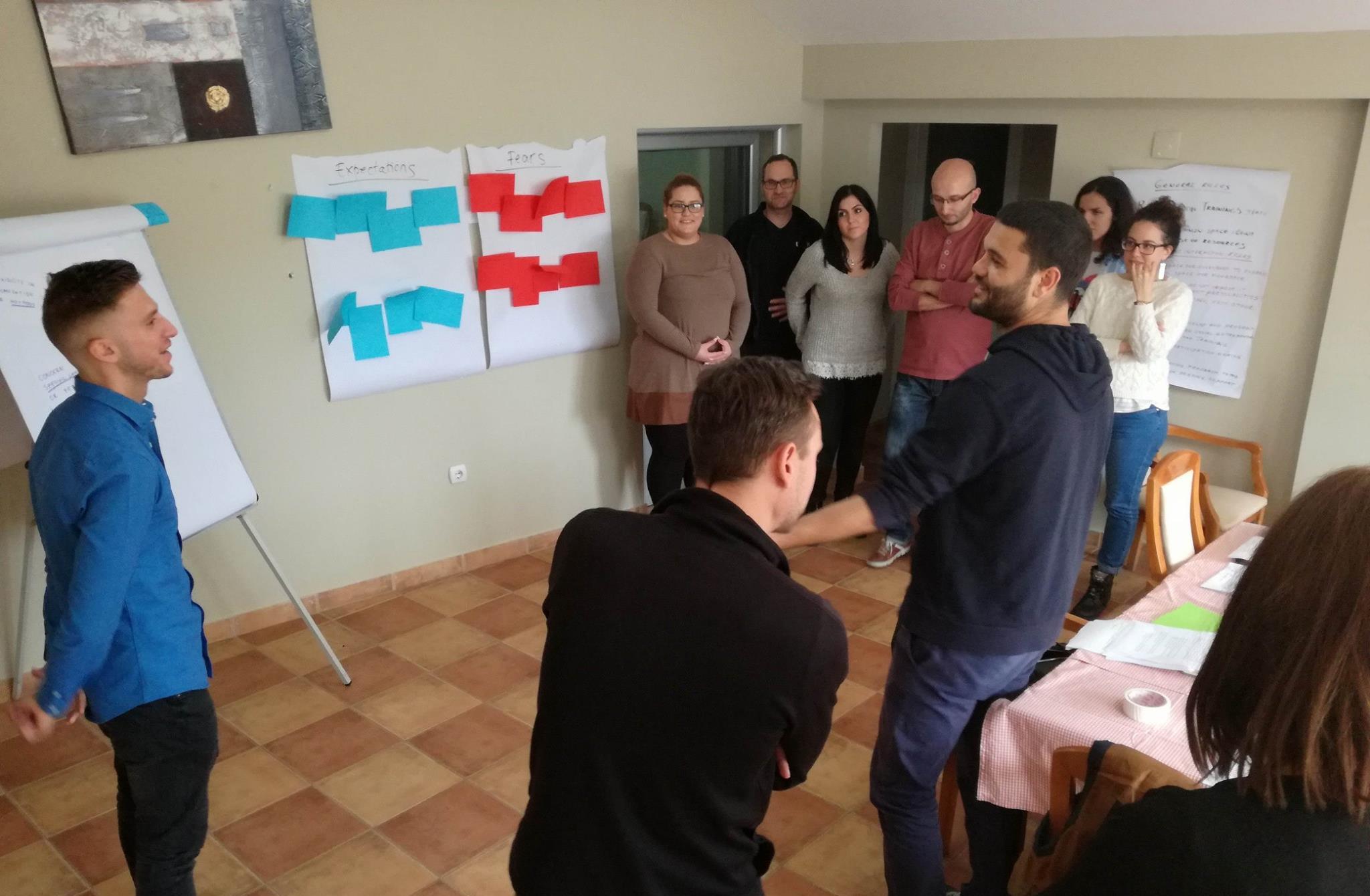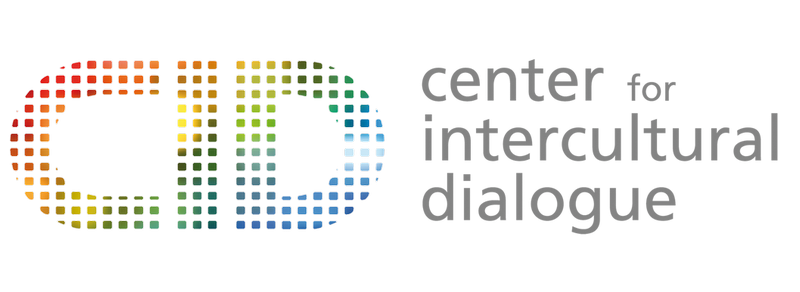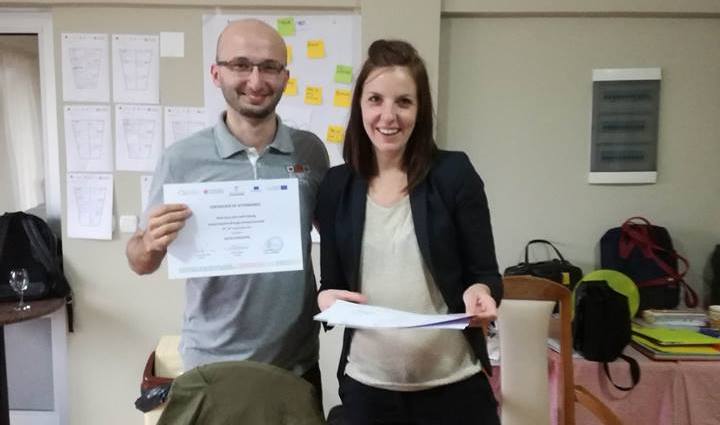Entrepreneurship and social activism are becoming more and more interconnected. And the benefits of employing entrepreneurship for fostering social inclusion are selling the concept in more and more European countries. This is how the idea for this project was born.
“Social inclusion through entrepreneurship” is a long-term project that is implemented by 3 civil society partner organizations: “Center for Intercultural Dialogue” from Macedonia, “Out of the Box International” from Belgium and “Wisamar” from Germany. According to the project implementation plan, in the period 24th-29th September, an adult training course for trainers was organized and held in Kumanovo, Macedonia. There were 9 participants from three countries: Macedonia, Belgium and Germany and 2 trainers from Macedonia who were responsible for facilitation and management of activities.
On the first day, the participants had the chance to introduce themselves by presenting their personal and professional background, their interests and experience in the field of social entrepreneurship. After that, through interactive presentations, discussions and exercises, the participants worked on the concept of adult learning (defining key characteristics of adult learners, comparison with children learning and drafting methodology and defining key elements that must be considered in the process of creation of adult learning programs).
On the second day, the concept of social entrepreneurship was shortly introduced by the trainers and several exercises were conducted in order to explore possible ways to link adult learning on inclusion with (social) entrepreneurship. Further, by conducting the exercise “World corners”, the participants ”visited” various corners and identified important local, regional, national or international problems according to their perceptions and preferences.
The agenda of the following days was dedicated to developing concepts for social enterprises that will tackle previously defined problems and solutions that will offer possibilities for social inclusion of marginalized groups. For successful implementation of these activities, a variety of non-formal learning methods and techniques for interaction were used, such as: business idea factory, social enterprise generator, assessing financial sustainability of an enterprise, generation of model for social inclusion, conducting offline and online market research…
As a specific output of the training’s workshops, 3 concepts for social enterprise were developed by the participants who worked in national groups for this purpose. During the workshops, the participants shared their ideas, opinions and recommendations regarding the concepts presented by other groups. In the end, the 3 developed concepts of social enterprise were officially presented in front of a jury consisted of 3 independent members who played the role of potential business investors. After the presentations, the potential business investors were allowed to ask questions regarding the concepts, to debate and try to challenge certain solutions and provide feedback and final assessments to the concepts elaborated by the participants.
What comes next? A study visit to Brussels will follow in the project, and the participants will get to learn about local social enterprises in Brussels.
